In the singular form the lexicon of a particular subject is all the terms associated with it. The lexicon of a person or group is all the words they commonly use. As a plural noun, a lexicon is an alphabetical list of the words in a language or the words associated with a particular subject. To distinguish lexicon from a dictionary, it is an alphabetical list of the words in a language or the words associated with a particular subject.
These examples are a mix of what one might hear upon the lips of the aristocracy, as well as examples of Cant used upon London’s streets and those terms used by farmers and like in the country.

M.P. – a member of Parliament
macadam – John Loudon Mcadam (21 September 1756 – 26 November 1836) was a Scottish engineer and road-builder. He invented a new process, “macadamisation”, for building roads with a smooth hard surface, using controlled materials of mixed particle size and predetermined structure, that would be more durable and less muddy than soil-based tracks. In two treatises written in 1816 and 1819 (Remarks on the Present System of Road-Making and Practical Essay on the Scientific Repair and Preservation of Roads) he argued that roads needed to be raised above the surrounding ground and constructed from layered rocks and gravel in a systematic manner.
McAdam had also been appointed surveyor to the Bristol Turnpike Trust in 1816, where he decided to remake the roads under his care with crushed stone bound with gravel on a firm base of large stones. A camber, making the road slightly convex, ensured rainwater rapidly drained off the road rather than penetrate and damage the road’s foundations. This construction method, the greatest advance in road construction since Roman times, became known as “macadamisation”, or, more simply, “macadam”.
macaroni – an Italian pasta made of flour and eggs; also a fop, which name came from a club called the Maccaronis, which was instituted by some of the most dressy traveling gentlemen about town, who led the fashions; when a man foppishly dressed was supposed a member of that club
“A macaroni (formerly spelled maccaroni) was a pejorative term used to describe a fashionable fellow of 18th-century Britain. Stereotypically, men in the macaroni subculture dressed, spoke, and behaved in an unusually epicene and androgynous manner.
“In the 18th century, wealthy young British men traditionally took a trip around Europe upon their coming of age, known as his Grand Tour. Italy was a key destination of these tours. During their trip, many developed a taste for maccaroni, a type of pasta little known in Britain then, and so they were said to belong to the Macaroni Club, founded in 1764 by those returning from the Grand Tour. They would refer to anything that was fashionable or à la mode as “very maccaroni”.
“The Macaroni suit, made up of a shorter, tighter fitting coat, colourful stockings, and shoes adorned with large buckles, and, fastened in a large bow, the Macaroni cravat, made from lace-edged muslin, were developed and worn in the 1770s.[6] A prominently large nosegay of flowers was often worn (on the left side of the chest or shoulder of the coat), along with a very small tricorne style hat.
“The song “Yankee Doodle” from the time of the American Revolutionary War mentions a man who “stuck a feather in his hat and called it macaroni.” Dr. Richard Shuckburgh was a British surgeon and also the author of the song’s lyrics; the joke which he was making was that the Yankees were naive and unsophisticated enough to believe that a feather in the hat was a sufficient mark of a macaroni. Whether or not these were alternative lyrics sung in the British army, they were enthusiastically taken up by the Americans themselves.” [Wikipedia]
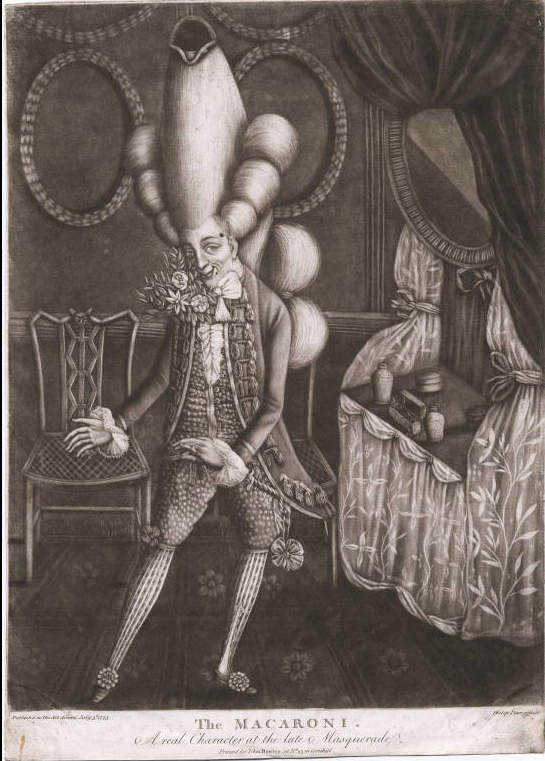
macintosh – (not a computer by Apple) invented by Charles Macintosh in the 1820s; rubberized waterproof clothing; originally these smelled “terrible”
madam – a kept mistress
madeira – a sweet white wine
magic lantern – The magic lantern has a concave mirror in front of a light source that gathers light and projects it through a slide with an image scanned onto it. The light rays cross an aperture (which is an opening at the front of the apparatus), and hit a lens. The lens throws an enlarged picture of the original image from the slide onto a screen. Main light sources used during the time it was invented in the late 16th century were candles or oil lamps. These light sources were quite inefficient and produced weak projections. The invention of the Argand lamp in the 1790s helped to make the projected images brighter. The invention of the limelight in the 1820s made it even brighter.
magistrate – another term for a justice of peace; where justices were usually unsalaried country gentlemen, magistrates received a stipend
Mahometan gruel – coffee (because formerly used chiefly by the Turks)
maid-of-all-work – a maid who performed all the chores in those households, which could afford only one servant
mail coaches – replaced the ill-conceived post boys in 1784; delivered the post to and from rural areas; was also a means of transportation for many
make an offer – propose marriage
malkintrash – one in dismal garb
malmsey nose – covered in carbuncles and rubies
“making love” – During the Regency, this phrase held no physical or sexual connotations. It simply meant verbal flirting or visual flirting (as in a knowing glance across a crowded ballroom).
“making violent love” – is telling the person of the depth of one’s love (i.e., Mr. Elton in “Emma”)
male inheritance defines a “gentleman’s status” – a true gentleman was a man of property; very likely he inherited his country estate and manor from his father; no other requirements were needed to define a “gentleman”
mangle – A mangle (as it is called in the United Kingdom) or wringer (as it is called in the United States) is a mechanical laundry aid consisting of two rollers in a sturdy frame, connected by cogs and, in its home version, powered by a hand crank.
man of the town – a rake; debaucher
man of the turf – a horse racer or jockey
man-of-war – large ship built specifically for warfare; The term often refers to a ship armed with cannon and propelled primarily by sails, as opposed to a galley which is propelled primarily by oars. The man-of-war was developed in England in the early 16th century from earlier roundships with the addition of a second mast to form the carrack.
man-trap – used to catch poachers; steel traps weighing up to 80 pounds
mantua-maker – a term for a dressmaker, based on the type of gown she made
marquise/marchioness – wife or widow of a marquis
marl – soil used as a fertilizer; it contained clay
mantuamaker: a shop that makes clothing, a dressmaker
marplot – a spoil sport
marquis/marquess – the second highest rank of the peerage after a duke
marriage – was more of a business arrangement than a romantic attachment; the girl’s father/guardian assured her financial protection
marriage settlement/articles – a contract between the future bride and groom, which stipulated how the gentleman’s money would be settled upon the wife and future children upon his death
Martin’s Day- Martinmas, November 11; “Martin’s summer” was used to describe a period of good weather continuing into the late autumn
Master of Ceremonies – employed to oversee the protocol of the large public assemblies (especially those held at the Upper and Lower Rooms in Bath); introduced young ladies and gentlemen to each other so they might dance together (i.e., Henry Tilney and Catherine Morland in “Northanger Abbey”); held knowledge of people’s backgrounds and shared information discreetly; Mr. James King was the MC for the Lower Rooms from 1785-1805, then moved to the Upper Rooms
mawkish – excessively and objectionably sentimental; sickening or insipid in taste; cloying; oversentimental
Mayfair – a half mile square in London’s West End; bounded by Oxford Street on the north, Bond Street on the east, Piccadilly on the south, and Hyde Park on the west; contains Pall Mall, Grosvenor Square, and Berkeley Square; the most elite residential area of London. The most desirable residential neighborhood in Regency London
merino – a superior wool from Spain
Merry Andrew – A buffoon, fool
mews – any lane or open area where a group of stables could be found
Michaelmas – the feast of St. Michael, which is held on September 29; one of the quarter days
Middlesex – the county in which London north of the Thames was located (to the south was Surrey)
Midsummer Day – another quarter day; celebrated on June 24, which was also the feast of John the Baptist
militia – volunteer soldiers; unlike the regular army, a man from a lower class could enter the militia as an officer; an army composed of ordinary citizens rather than professional soldiers. In Jane Austen’s time militias were called on to protect the homeland from overseas invasion if needed. Commissions in the militia could be purchased.
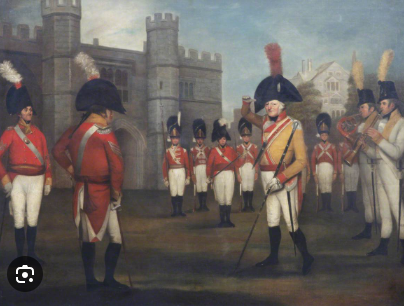
milliner – a maker of women’s hats and bonnets; the proprietor may also sell fabric, spencers, pelisses, various hats, ribbons, handkerchiefs, and aprons
minuet – a French dance for two people; a stately dance that began in 17th century France that consisted of small steps in time with slow music. This dance was usually the first dance at an assembly or ball.
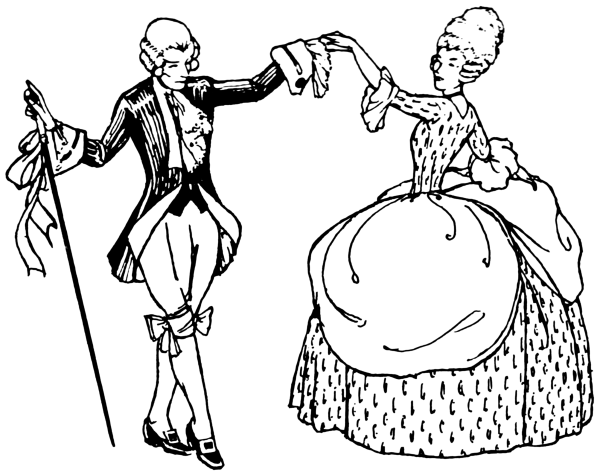
“Miss” – used with a surname meant the eldest of several sisters (as in Jane Bennet in Austen’s “Pride and Prejudice,” she is Miss Bennet, while the other girls are Miss Elizabeth, Miss Mary, Miss Catherine, and Miss Lydia, respectively)
“Mister” – used with the man’s surname to indicate a surgeon or apothecary; a physician was “Doctor”; also males not of the aristocracy; of the gentry class (as in Mr. Bennet in “Pride and Prejudice”)
missish – an adjective for a girl who is naive and inexperienced in society and tends to be silly or easily cowed; demure, prim; affected; OED’s [Oxford English Dictionary] earliest evidence for missish is from 1795, in the writing of Fanny Burney, writer.
mobcap – a standard indoor headgear; A mob cap or mob-cap is a round, gathered or pleated cloth (usually linen) bonnet consisting of a caul to cover the hair, a frilled or ruffled brim, and (often) a ribbon band, worn by married women in the era.
modiste – a fashionable and expensive lady’s dressmaker, often French (or pretending to be so)
monkey – 500 pounds Sterling (Cant)
moor – a wild, desolate area in Yorkshire, which is usually covered by heather; a term used in northern England and southern Scotland to designate a boggy or marshy area
morning calls – ceremonial visits paid by the genteel to ladies “at home” in their drawing rooms; Less formal visits, morning calls were actually paid between the time of rising and that of eating dinner, effectively between eleven in the morning and three in the afternoon. Earlier calls might interfere with breakfast or a lady’s morning household duties. Later visits might suggest indecorous attempts at securing an invitation for dinner. The earlier in the day, the less close the acquaintance, the later the greater degree of intimacy between the parties.
muslin – a fine quality of cotton; very thin material; some young women wore muslin dresses with damped down chemises underneath
mute – a person hired to attend a funeral and mourn
Other Sources:
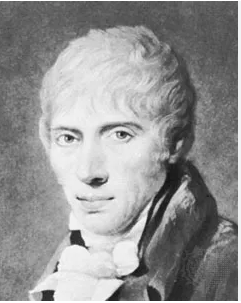


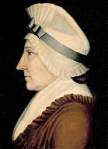




Macadam I think deserves a place here Regina, It was pioneered in 1820 so I think it just scrapes in, you probably see it everytime you get into your Buick and head out. It’s the surface of the road pioneered by another Scot John Loudon MacAdam, of course his initial idea has been greatly improved upon but pretty well all road construction these days have there roots in MacAdams, macadam.
John Loudon Mcadam is a real-life character in one of my scenes in “A Touch of Honor: Book 7 of the Realm Series.” I did a bit of research on him when I was writing the story line. John Loudon McAdam (21 September 1756 – 26 November 1836) was a Scottish engineer and road-builder. He invented a new process, “macadamisation”, for building roads with a smooth hard surface, using controlled materials of mixed particle size and predetermined structure, that would be more durable and less muddy than soil-based tracks. In two treatises written in 1816 and 1819 (Remarks on the Present System of Road-Making and Practical Essay on the Scientific Repair and Preservation of Roads) he argued that roads needed to be raised above the surrounding ground and constructed from layered rocks and gravel in a systematic manner.
McAdam had also been appointed surveyor to the Bristol Turnpike Trust in 1816, where he decided to remake the roads under his care with crushed stone bound with gravel on a firm base of large stones. A camber, making the road slightly convex, ensured rainwater rapidly drained off the road rather than penetrate and damage the road’s foundations. This construction method, the greatest advance in road construction since Roman times, became known as “macadamisation”, or, more simply, “macadam”.